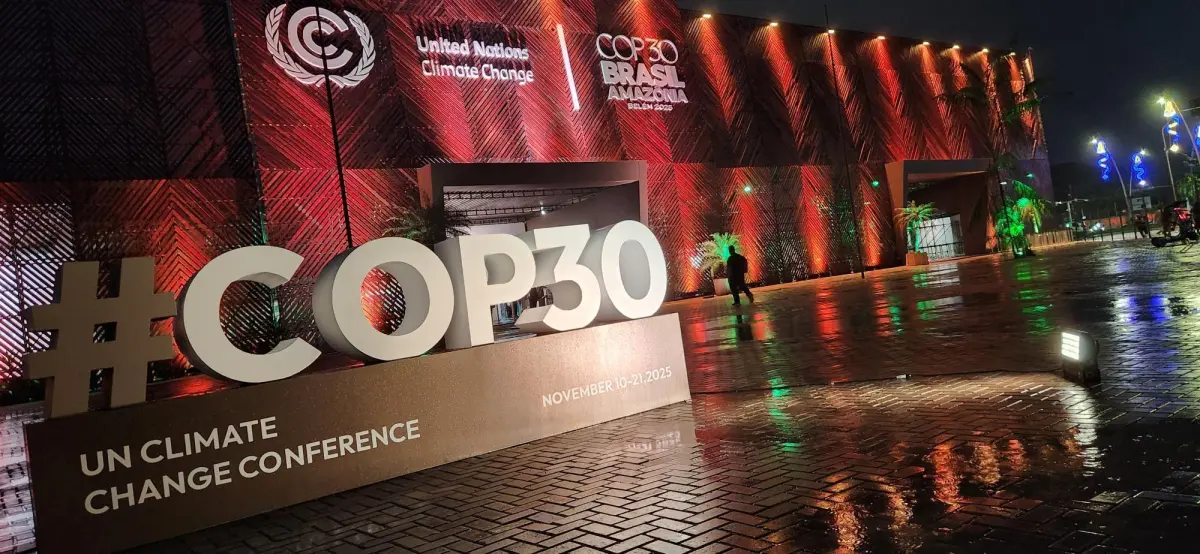
More than 1,600 fossil fuel lobbyists are registered for the COP30 climate talks underway in Belém, Brazil, according to an analysis by a coalition of environmental and social justice groups.
The group’s review of people granted access to COP30 found that fossil fuel lobbyists at the climate talks outnumber the delegations from nearly every country (only host country Brazil has more people present). According to the analysis, one in every 25 participants at the gathering in Belém represents the fossil fuel industry.
“It is infuriating to watch their influence deepen year after year, making a mockery of the process and of the communities suffering its consequences,” Jax Bongon of the Kick Big Polluters Out coalition said in a statement. Bongon is a resident of the Philippines where a super typhoon Fung-wong made landfall just as the COP30 talks were getting underway early this week bringing widespread flooding and damage.
Climate scientists say climate change has created ocean conditions that supercharge ocean storms, making them more intense. Bongon said the analysis shows a need to protect the United Nations climate policymaking process from corporate capture.
“It’s common sense that you cannot solve a problem by giving power to those who caused it,” he said.
The coalition has done similar analyses of fossil fuel industry presence at previous COP gatherings. At COP28 in 2023, hosted by the oil-rich United Arab Emirates, the group identified more than 2,400 attendees as fossil fuel lobbyists.
However, the group noted, because overall attendance at COP30 is much lower than at COP28, the proportion of fossil fuel lobbyists in Belém is higher.
The group identified fossil fuel lobbyists among many official country delegations. Other lobbyists gain “behind the scenes” access with special badges that allow access to the inner workings of the negotiations, the group’s report said.
The coalition also identified fossil fuel lobbyists among major trade associations, which the group called “a primary vehicle for fossil fuel influence.”
The group’s analysis singled out the International Chamber of Commerce (ICC) for bringing 148 lobbyists to COP30.
Andrew Wilson, deputy secretary-general for policy at ICC, disputed the report’s findings and said that the numbers are overstated. Wilson told Newsweek that the ICC brought a total of 148 members to Belém.
“That should not be read as 148 tickets went to the fossil fuel industry,” Wilson said. “Only three went to fossil fuel companies.”
Wilson said the ICC is “absolutely committed” to the Paris Climate Agreement.
“Our aim is to accelerate the energy transition,” he said. “We see fossil fuel companies as a vital part of that journey given our energy needs.”
The oil and gas industry’s presence at COP has been a long-standing point of contention at the annual COP climate talks and climate action groups complain that such access allows the industry to stymie efforts to phase out fossil fuels.
A report released in October by scholars at the Climate Social Science Network described more than a dozen ways that industry actors can halt progress, concluding that “obstruction has become a defining feature” of the United Nations climate process.
Obstruction “is often subtle and context-specific, making it difficult for negotiators, observers, and civil society to identify obstruction tactics in real time and even harder to counter effectively.”
In a call with journalists just before COP30, Rhode Island Democratic Senator Sheldon Whitehouse, a leading voice for climate action on Capitol Hill, expressed frustration at the fossil fuel industry’s tactics.
“We’ve been too nice about this for too damn long,” Whitehouse said, accusing the industry of perpetrating “climate denial fraud” for decades. “The most corrupting influence we face is the dark money corruption of the fossil fuel industry.”
